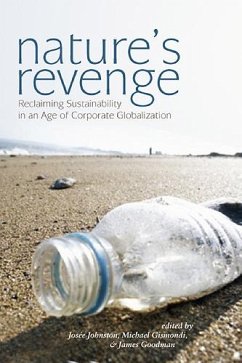The social and political contest over the meaning of the term "sustainable development" is vital. Those who win will dictate the agenda and the policies around future environmental issues. This book proposes a radical definition of sustainability, reclaiming the word from the rhetoric typically used by corporations and governments to facilitate unrelenting economic growth and the notion of "business as usual." The authors base their approach on the classic notion of the "commons." This key concept in environmental circles traditionally refers to commonly held, or shared, rights and property such as water, air, and other resources necessary for human survival. In this book the idea of the commons is also extended to include what the authors call the "social commons," encompassing areas such as community knowledge and culture. The authors argue that the social commons should be democratically controlled, and at all levels of ecological reality from the local to the global. Here the "commons" are seen as operating in a spatially fluid manner, across not only geographical boundaries, but also human generations and ecological timescapes. The authors stress the complex interrelations that exist at local, regional, national, continental, and global levels of human organization and observe that there can be no simple solution confined to one particular scale of action. They critique advocates of an exclusive concentration on localism just as much as those who argue it is enough simply to write global treaties. This book seeks to reclaim public power against private interests, thus creating an empowered, sustainable ecological community.
Hinweis: Dieser Artikel kann nur an eine deutsche Lieferadresse ausgeliefert werden.
Hinweis: Dieser Artikel kann nur an eine deutsche Lieferadresse ausgeliefert werden.








